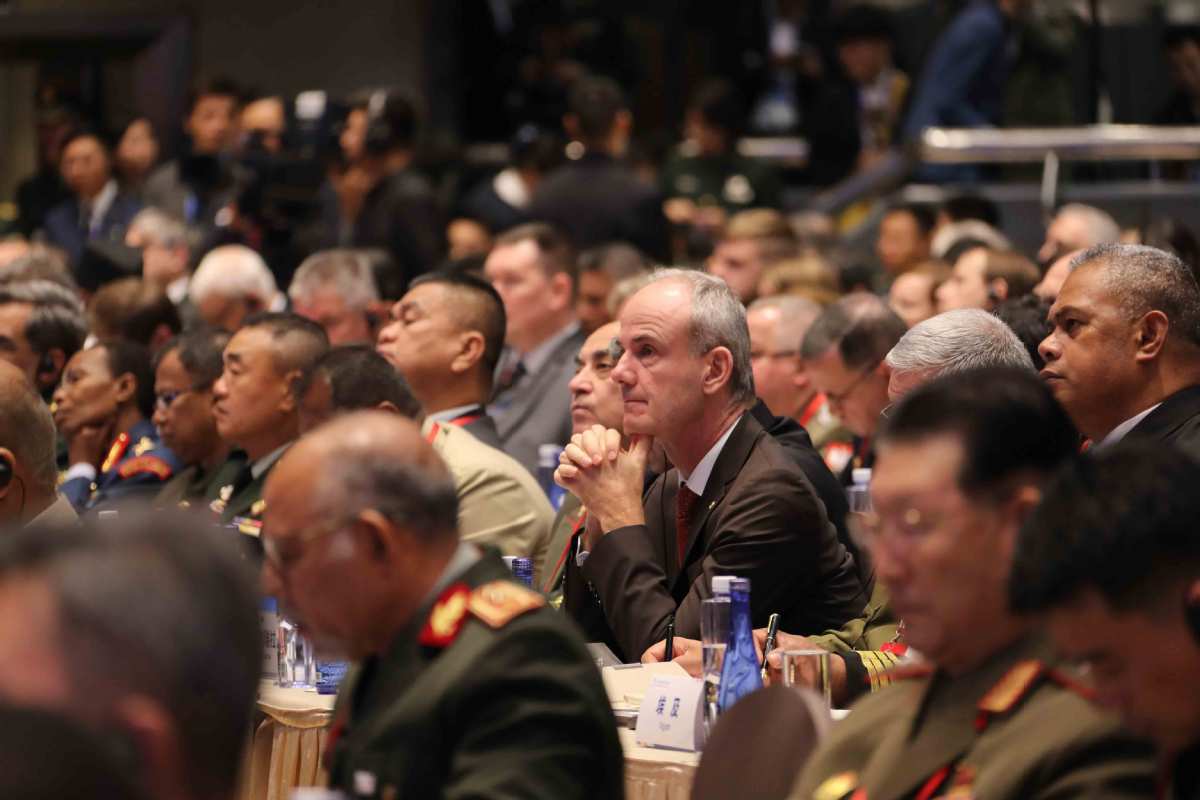Xiangshan forum addresses counterterror strategies


Counterterrorism is facing new and increasingly complex challenges ranging from rising levels of online terrorist activity to state-sponsored terrorism. These problems will require more holistic approaches, stronger consensus and deeper cooperation among countries, defense officials and experts said on Monday.
Major General Wang Jingwu, president of the National University of Defense Technology's School of International Relations, said that despite the defeat of the Islamic State group in Syria, the threat of terrorism still looms large and is spreading within Asia and Europe.
In 2017, the world suffered around 8,580 terrorist attacks, leading to more than 18,700 deaths, Wang said during a session on international counterterrorism cooperation during the 9th Beijing Xiangshan Forum.
So far this year, there have been around 1,545 terrorist attacks and 6,825 fatalities around the world, according to the Environment Rating Scales Institute in the United States.
"Terrorists are becoming more globalized, internet-savvy and younger," he said. "This poses serious challenges to global counterterrorism efforts because terrorists are becoming more scattered and elusive, and they can carry out surprise attacks in a wide range of locations."
Apart from expanding their presence in countries such as Turkey, the Philippines, Indonesia and Malaysia, terrorists are also moving into the virtual realm by spreading propaganda, attracting recruits and financing their operations via social media and the darknet, Wang said.
"The internet is now a new battlefield for counterterrorism, and (fighting terror) is a herculean task that will require considerable effort from the global community," he said.
However, the global fight against terrorism is losing steam as the US, one of the main pillars of counterterrorism, has recently switched its strategic priorities to competition between big nations, and tackling terrorism no longer carries the same significance as it once did in 2001, Wang said.
To complicate matters, some countries are abusing the definition of terrorism and counterterrorism mechanisms to advance their own national goals. "Terrorists in one country might be considered 'freedom fighters' and get support from another," he said. "If we can't even have a common understanding of what a terrorist is, the future of global counterterrorism efforts will be very difficult."
To tackle these issues, Wang suggested countries should forge a stronger consensus against terrorists' acts against humanity and their use of violence to advance their goals.
More counterterrorism operations under the United Nations framework, increased intelligence-gathering capabilities, online and legal collaboration between nations, promotion of cultural multilateralism and elimination of fundamentalist and radical thinking are also keys, he added.
Major General RPS Bhadauria, a distinguished fellow at the United Service Institution of India, said the social and psychological makeup of a terrorist is extremely complex, with many new recruits being well-educated and middle-class youth - demographic characteristics traditionally thought to be less susceptible to extremist ideals.
"We can kill a terrorist, but what we really need to do is kill the idea behind the terrorist," Bhadauria said.
Zhang Jiadong, director of Fudan University's Center for South Asian Studies, said terrorism may not be extirpated, but it can be curbed through joint efforts and by achieving peace and economic development in distressed regions.
- Hunan achieves record grain output in 2025
- Thai students to train in China as universities expand high-speed rail cooperation
- China unveils world's fastest full-size humanoid robot
- Former Chinese Arts Academy president under investigation for alleged Party violations
- China outlines 2026 priorities for rural development and modernization in No 1 central document
- Road accident in Northeast China kills 5, injures 2





































